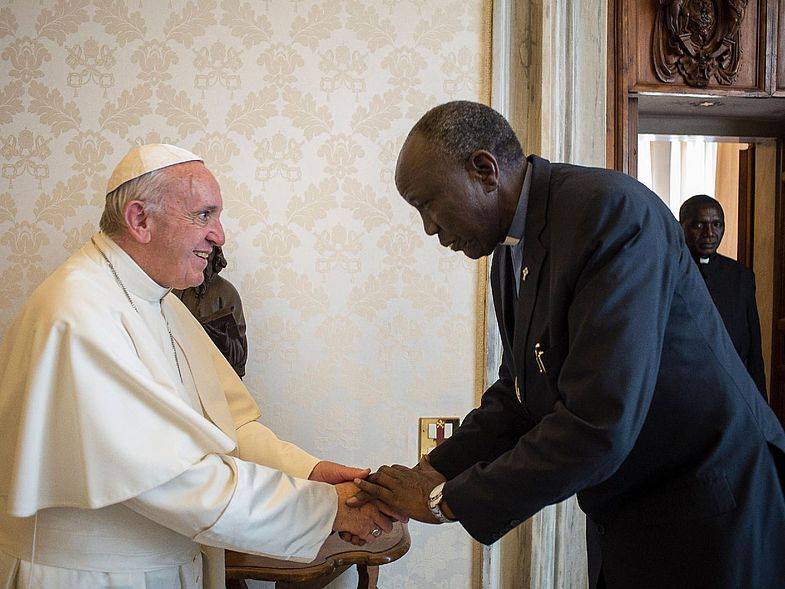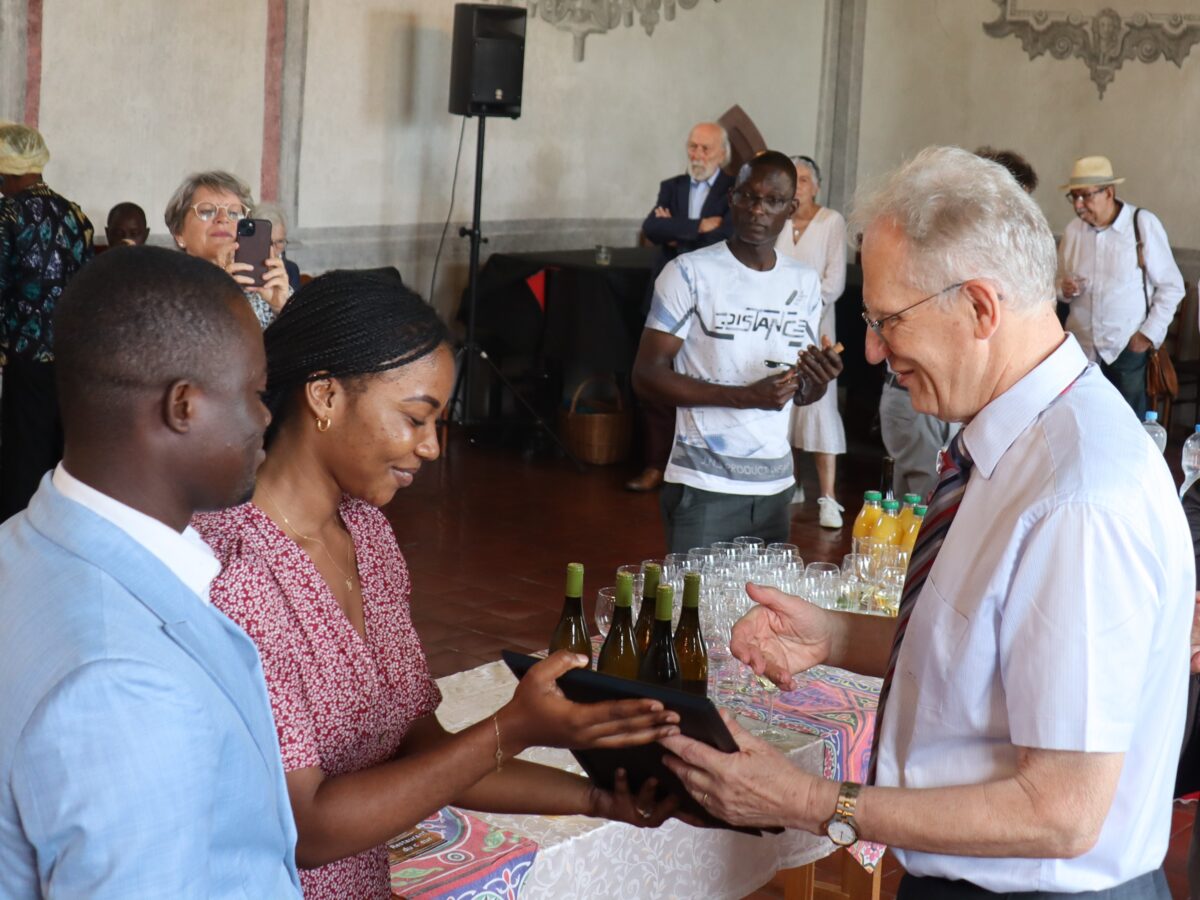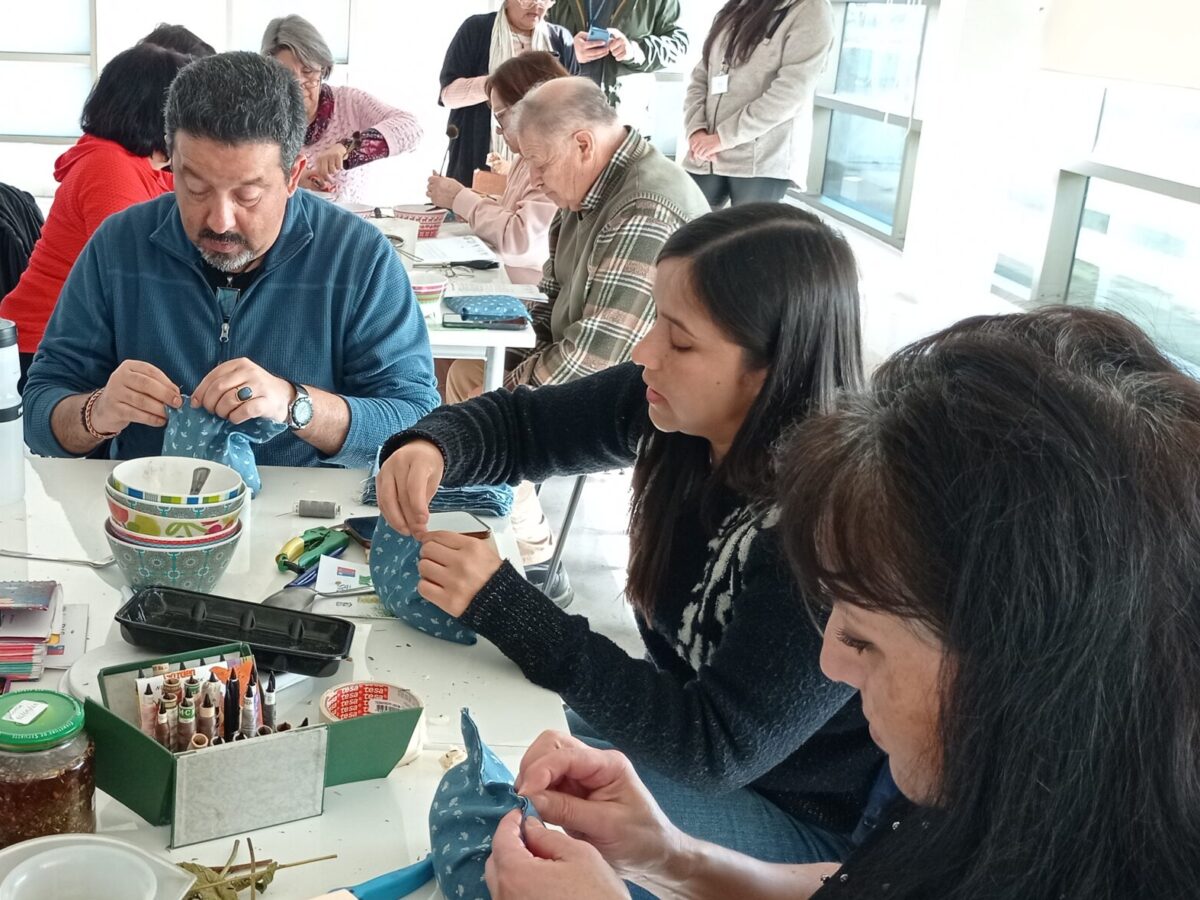Peter Gai, what was the goal of the meeting with the Pope?
This year, a new government is to be formed in South Sudan following the peace agreement reached last year. A meeting between the political and religious leadership in the country therefore made sense so that the Holy Spirit would support the formation of the government. The former warring parties should be brought closer to God so that peace can be maintained. The Pope presented each of us with a Bible with the inscription, "Seek that which unites, overcome that which divides." With this, the Pope also held the politicians accountable.
Was the meeting a success?
There had never been a meeting like this before! The body language of Kiir and Machar signaled to me that they were relaxed. Also, that the two were there without their bodyguards made them more approachable. After the Pope kissed the feet of President Salva Kiir and the future Vice President, the mood really warmed up. The Pope also pointed out our national anthem. It begins with "Oh God, we praise and glorify you" and ends with "Oh God, bless South Sudan." He said this shows that South Sudan is a God-fearing nation and therefore he exhorted politicians to work for peace. Change must start from them. I was very impressed by the Pope's commitment to South Sudan.
What impact did the meeting have on Machar and Kiir?
It is a turning point. The hearts of Machar and Kiir were deeply touched. What still worries me is the influence of their respective people who did not attend the meeting. We churches will definitely redouble our efforts. We will continue the dialogue with Machar and Kiir. Because, as a reminder, the peace agreement was not decided in Rome, it was worked out here in South Sudan.
At the moment, it looks like the planned formation of a government in May will be postponed further...
Exactly. Already during our group talks in the Vatican, Machar talked about wanting to postpone the formation of the government. There are two big problems that already led to the failure of the unity government in 2016. First, demilitarization has not yet taken place. Right now there are two armies that need to be unified and in the new army there needs to be a good mix between ethnicities. Secondly, we are facing big financing problems. The whole process costs money, which we do not have. Because of the war, the economy has collapsed. In addition, because of climate change, it rains less and less. Also, the international community does not trust peace yet, so there are few donations.
Not only the meeting between church leaders and the political leadership was a historic moment. Things were also happening in the neighboring country. For example, Sudanese President Omar al-Bashir was deposed by the army. What does this mean for keeping the peace in South Sudan?
During the retreat, Machar and Kiir already spoke with Sudan's new military leadership. She assured them that Sudan wants to continue to strengthen South Sudan in keeping the peace. My message is, "Yes, there is hope!" We church leaders have told the political leadership that the interest of South Sudanese children must be at the forefront. We will all join hands. Our peace will remain.
Info:
Reverend Peter Gai Lual is president of the Presbyterian Church of South Sudan, Mission 21's partner church and the third largest church in the country. He is also chairman of the South Sudan Federation of Churches, the umbrella organization of the major churches and church bodies in South Sudan, which launched the Action Plan for Peace. This nationwide peacebuilding initiative is receiving much international attention and support.






